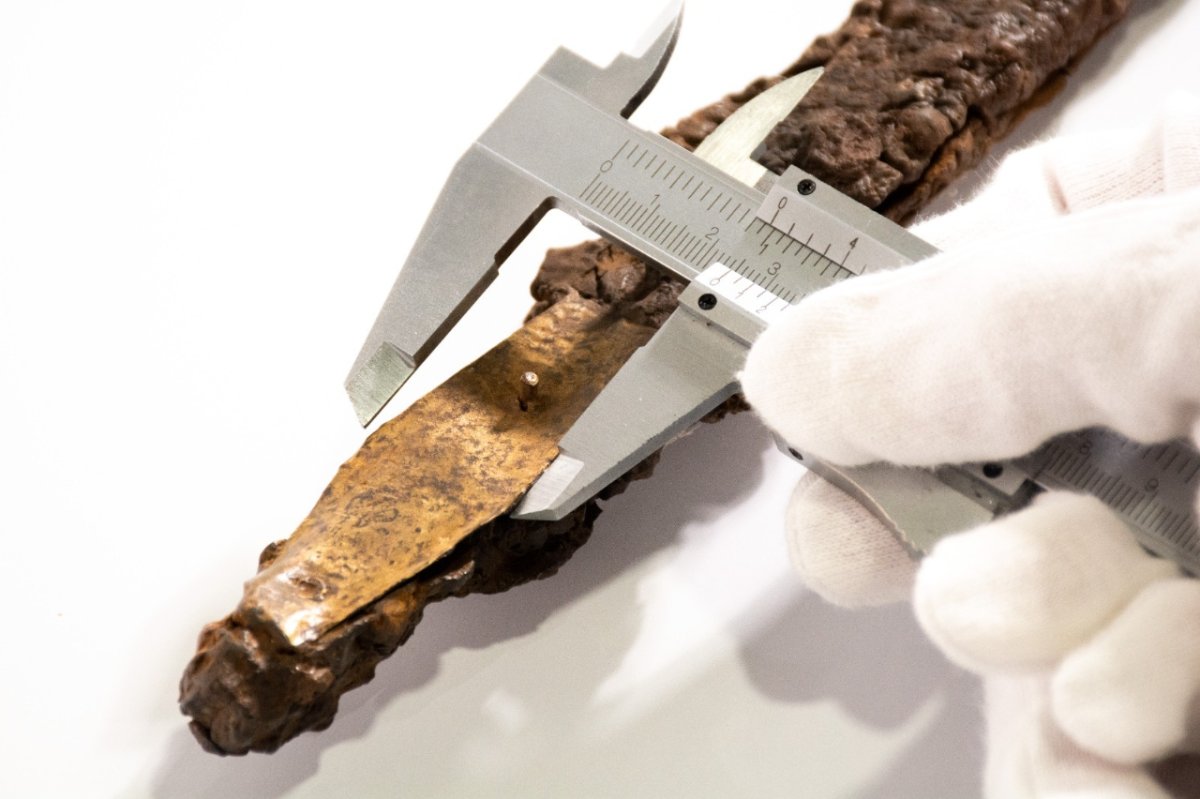The secrets of a historic sword dubbed "Excalibur" are being unraveled, as researchers finally reveal its age.
The iron sword was originally found stuck in the ground upright in 1994 at an archaeological site in the old town of Valencia, a city located on Spain's eastern coast. The site was located to the north of the ancient Roman Forum, in an area that has been occupied by various cultures throughout the city's history.
Given its position, researchers named the artifact "Excalibur" after the mythical sword from the British legend of King Arthur. The myth describes a special sword that was fixed in a stone upright with magic. In the story, only Arthur was able to pull the sword from the stone, and after doing so, he was crowned king.
The age of the real sword found in Valencia had remained unclear since its discovery, thus hampering attempts to interpret its significance. But now, the Archeology Service (SIAM) of the Valencia City Council has managed to date the sword, determining that it originates from the 10th century, making the artifact more than 1,000 years old.

This places the weapon within a time period when much of the Iberian Peninsula, including Valencia, was under Islamic rule, with this area referred to as Al-Andalus. The Islamic period in Spain began in A.D. 711 and ended in A.D. 1492 after a successful military campaign by the forces of European Christian kingdoms.
The dating of the sword means it is the first from the Islamic era to be found in Valencia, according to SIAM. In general, well-preserved swords from this period are rare in Spain, particularly in Valencia, where the characteristics of the soil make conservation difficult.
The sword measures around 18 inches in length and features a hilt decorated with bronze plates. The blade, which is of moderate size, curves slightly toward the tip—a characteristic that had previously sparked some confusion regarding the age, of the artifact since Visigoth swords had a similar shape.
The Visigoths were a Germanic people who played an influential role in Europe in the declining years of the Western Roman Empire and the Early Middle Ages. In the Iberian Peninsula, the Christianized Visigoths established a large kingdom following the fall of the Empire that persisted from the 5th to 8th centuries—right up until the Islamic conquest of the region.
Despite the similarities to Visigoth swords, researchers managed to date "Excalibur"—which has now been restored—thanks to the sediment layers it was found it. The size of the weapon and the absence of a guard for the hand suggests that it could have been used by a horseman.
"This sword has a unique design that gives it great archaeological and heritage value," José Luis Moreno, Valencia councilor for cultural action, heritage and cultural resources, said in a press release.
Do you have a tip on a science story that Newsweek should be covering? Do you have a question about archaeology? Let us know via science@newsweek.com.
Uncommon Knowledge
Newsweek is committed to challenging conventional wisdom and finding connections in the search for common ground.
Newsweek is committed to challenging conventional wisdom and finding connections in the search for common ground.
About the writer
Aristos is a Newsweek science reporter with the London, U.K., bureau. He reports on science and health topics, including; animal, ... Read more
To read how Newsweek uses AI as a newsroom tool, Click here.








